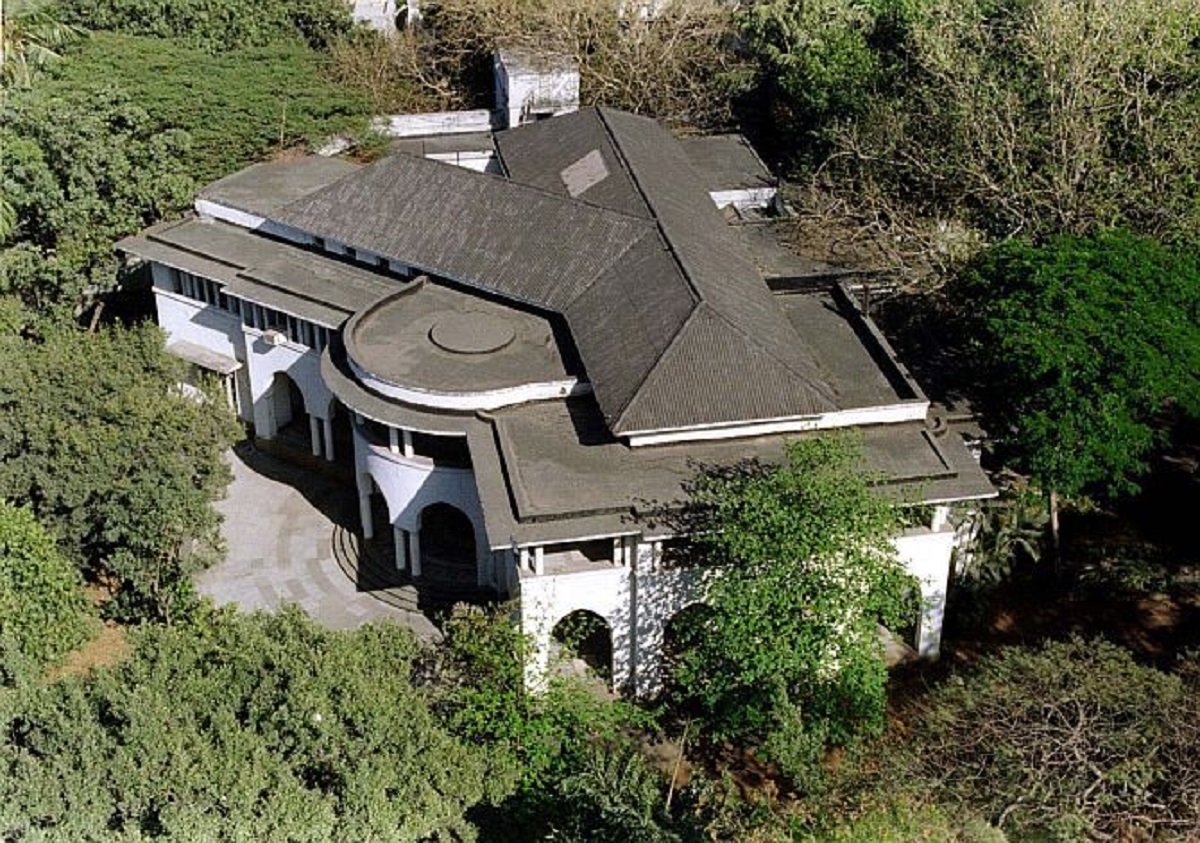Enemy Properties On Sale: Government Initiates The Eviction And Sale Of Properties That Are Considered To Be Owned By Persons Regarded As ‘Enemy’ Of The Nation.
The ruling will result in a monetizing moveable enemy properties that has been dormant for decades.

The Union Home Ministry started the process of evicting and selling enemy properties, which are immovable assets stranded behind by persons who have gained Pakistani or Chinese citizenship. Throughout the country, there are a total of 12,611 entities called enemy property, which are believed to be valued at more than Rs 1 lakh crore. The Custodian of Enemy Property holds the enemy possessions for India (CEPI), a body established under the Enemy Property Act.
According to a Home Ministry statement, the criteria for disposing of enemy properties have been revised, and the process for eviction of enemy properties must now be launched with the help of the District Magistrate or Deputy Commissioner involved before the property sale.
The current notification cited that in the subject of enemy properties valued less than Rs 1 crore, the custodian shall first offer for purchase to the occupant, and if the occupant says ‘no’ to the offer of purchase, the enemy property shall be discarded in the way that is defined in the guidelines. The CEPI shall dispose of enemy properties with a valuation of Rs one crore and less than Rs 100 crore by e-auction or otherwise as authorized by the central government and at the rate defined by the Enemy Property Disposal Committee. The CEPI will employ the Metal Scrap Trade Corporation Limited’s e-auction platform for the e-auction of enemy properties, according to the home ministry.

According to sources, the government has gained more than Rs 3,400 crore through the sale of enemy properties, mostly moveable assets like shares and gold. Hence yet, the government has not monetized any of the 12,611 immovable enemy properties. The Home Ministry has already initiated a countrywide study of enemy properties in 20 states and three UTs to identify and then monetize all such holdings.
The Directorate General of Defence Estates (DGDE) will perform a first-of-its-kind countrywide assessment to analyze the existing circumstances and worth of the enemy properties identified by the CEPI. In 2020, the government established a Group of Ministers (GoM) led by Union Home Minister Amit Shah to oversee the monetization of enemy properties.
Who is in charge of these enemy properties?
Following the wars, the Defence of India Act was no longer in effect. The Enemy Property Act was passed in 1968 to govern these holdings. The statute gave the Custodian of Enemy Property of India (CEPI) the authority to oversee and protect enemy property.
There were Pakistani citizens and Chinese in the 12,611 properties vested in the CEPI.
- Pakistan-12,485.
- China- 126.

Following are the corresponding enemy properties according to the documents.
- Uttar Pradesh has the most enemy properties- 6,255.
- West Bengal- 4,088 properties.
- Delhi- 659.
- Goa- 295.
- Maharashtra- 208.
- Telangana- 158.
- Gujarat- 151.
- Tripura- 105.
- Bihar- 94.
- Madhya Pradesh- 94.
- Chhattisgarh- 78.
- Haryana- 71.
- Kerala- 71.
- Uttarakhand- 69.
- Tamil Nadu- 67.
- Meghalaya- 57.
- Assam- 29.
- Karnataka- 24.
- Rajasthan- 22.
- Jharkhand- 10.
- Daman and Diu- 4.
- Andhra Pradesh-1.
- Andaman and Nicobar Islands-1.
Define enemy properties.
Enemy property is defined to be the property owned by persons or associations who are considered the “enemy” of the country. Individuals or organizations who are citizens or inhabitants of countries at war with India or have been pointed out to be a threat to India’s security and sovereignty are often included.
Examples of enemy property.
- Real estate.
- Buildings.
- Land.
- Bank accounts.
- Shares.
- Other assets.
The Custodian of Enemy Property for India (CEPI) maintains specific rights revolving around enemy possessions in India, according to the Enemy Property Act of 1968 (modified in 2017).
/newsdrum-in/media/media_files/P3ulZVoXTmTjw5w8ZheE.jpg)
The Statute Against Enemy Property.
The Enemy Property Act was originally adopted in India in 1968, shortly after the 1965 Indo-Pakistani War. The purpose of the act was to provide for the transfer of enemy property to the Custodian of Enemy Property for India. The Custodian is in charge of managing and administering enemy property on the government’s behalf.
The Enemy Property Act has been amended in multiple periods in bygone years. The most notable of these was the 2017 amendment. The Act was revised in response to the claims of Raja Mohammad Amir Mohammad Khan’s heirs on his lands in Uttar Pradesh and Uttarakhand. The shift dismissed the legal heirs’ claim to the enemy’s property. The change further enlarged the Act’s reach to cover not just the property of persons from aggressive states, but also the property of their descendants or successors who are Indian citizens. The regulation also entitled the government to sell enemy property, which was formerly illegal.
CEPI is given authority.
The Custodian of Enemy Property for India has considerable authority to oversee and administer enemy property under the Enemy Property Act of 1968. The purpose of these powers is to prevent the enemy property from being used to support actions that endanger national security.
They include the authority of the following.
- Seize and control enemy property on behalf of the government.
- Collect and receive all enemy property rentals, profits, and revenue.
- When instructed by the government, sell, lease, or otherwise dispose of enemy property.
- Use lawful standards to protect and preserve enemy property.
- Cover all expenditures linked to enemy property management and administration.
Previous public reactions to action against enemy properties.
The opposition traits associated with Pakistan are associated with Muslims. It is worth noting that carrying out any action against such properties is a task competently handled by the ministry of home affairs, because local Muslims related to that property in some manner may provide a stumbling block in the processes to be followed. Protests in Chennai sponsored by the notorious Islamic group Tamil Nadu Thowheed Jamath (TNTJ) are one of the most recent examples of such restrictions.

Officers from the Custodian of Enemy Property for India, Mumbai, arrived in Chennai in January 2021, followed by revenue officials and local police, to seal up the Thowheed Jamath headquarters, which is reported as Pakistani property under the Enemy Property Act 1968. The Thowheed Jamaat, whose building is documented as Pakistani property, had received multiple warnings from state officials for breaking the Enemy Property Act. After no action from their end, personnel from the Custodian of Enemy Property for India, Mumbai, sealed the office, escorted by revenue officials and local police.
After the news spread, TNTJ office-bearers from other sections of the city gathered around the premises to condemn the move. The demonstration lasted over two hours, creating significant disruption to the public.
According to reports, the building was originally handed to Abdul Rahman, Vice President of TNTJ, to establish a lungi corporation. However, Rahman has been employing the facility as the TNTJ’s headquarters. In reality, Rahman only has the power of attorney since the actual property is owned by Tuba Khaleeli, who now resides in Pakistan.
Abdul Rahman, Vice President of TNTJ at the time, stated that the Thowheed Jamaath office is located on enemy land, and when the Union government determined to dispose of the enemy property, they began paying rent to the government. He further stated that the extreme Islamist association considered acquiring the land.

What is the movement’s overall impact?
The ruling will result in a monetizing moveable enemy property that has been dormant for decades. The sales earnings may be employed for development and social welfare programs.
edited and proofread by nikita sharma




